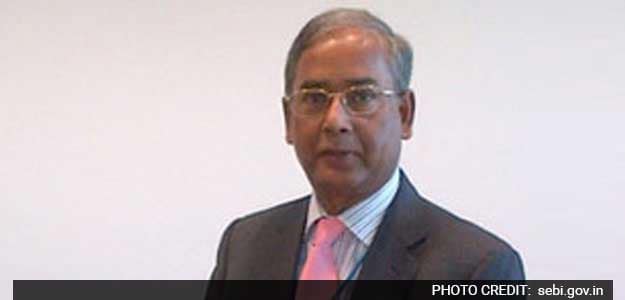
New Delhi: U K Sinha today began his new term as Chairman of capital markets regulator Sebi following his reappointment to this position by the government.
Sinha, who became Chairman of the Securities and Exchange Board of India (Sebi) on February 18, 2011, was initially appointed for a three-year term and was later given a two-year extension.
Days before his last term was to end on February 17, the government approved his re-appointment to the position from February 18, that is today, till March 1 next year.
Sinha’s re-appointment, approved by Prime Minister Narendra Modi-headed Appointments Committee of the Cabinet, is being seen as a vote of confidence for continuity at the top amid volatile market conditions.
He was eligible for another term of little over a year as a person can hold the position of Sebi Chairman till the age of 65, which Sinha would reach next March.
This would keep him in office for little over six years -the second-longest for this position in Sebi’s over 25-year-history after D R Mehta’s seven-year term from 1995 to 2002.
The regulatory ambit of the Securities and Exchange Board of India (Sebi) has further expanded in recent months with the merger of erstwhile commodities regulator FMC with it.
Sebi, which regulates stock exchanges, various kinds of market entities including brokers, mutual funds, FIIs, rating agencies and investment bankers, as also thousands of listed companies, was also given greater powers during Sinha’s tenure to help it crack down more effectively on market manipulators and fraudulent money-pooling schemes.
There had also been apprehensions that a change of guard at this time could be avoided given the sharp volatility in the capital markets globally.
During Sinha’s tenure, Sebi has implemented a number of capital markets reforms including those related to IPOs, mutual funds and corporate governance. A key initiative announced recently is a new regime for listing startups.
Other keenly watched developments during Sinha’s tenure have been the action taken by the regulator against hundreds of ponzi schemes and lately against over 1,000 individuals and companies suspected of tax evasion and laundering of black money through the stock exchange platform.
Sebi has also acted against illicit money-pooling schemes from high-profile groups like Sahara, Saradha and Rose Valley, while several big corporates including Reliance, DLF and FTIL have seen regulatory action against them during his tenure.
Before joining Sebi, Sinha was heading UTI Mutual Fund. Prior to that, he had served in Finance Ministry, among other positions, as an IAS officer when he spearheaded several initiatives, such as banking and capital market reforms.
[“source-auto.ndtv”]





